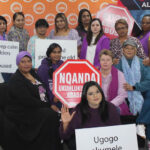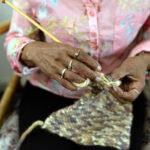Tafta calls on local government to prioritize the elderly
Ahead of the municipal elections set to take place on 1 November 2021, Tafta is calling on local government bodies to prioritize the elderly. With our month-long commemoration of the United Nations International Day of Older Persons drawing to a close just as the elections begin, Tafta has highlighted the need to promote active ageing and improve service delivery to the aged.
Global growth of older populations
On a global scale, the population of older people is growing, with the global average of life expectancy forecast in 2019 as 72,6 years old. The United Nations has confirmed that this is the highest global average yet, indicating that a shift in population towards older ages is currently underway. According to the World Health Organization, while this shift began in high-income countries, it is now low- and middle-income countries that are experiencing the greatest change. Statistics from 2019 put the number of people aged 65 and over at 703 million worldwide, while the number of children under the age of 5 was recorded at 677.37 million.
Tafta CEO, Femada Shamam, said that the Covid-19 pandemic had thrown a global spotlight on the vulnerability of the elderly, but that their plight was not yet fully understood.
Only 6% of elders can afford to retire comfortably
“While both children and elders are classified as vulnerable groups, the elderly are often forgotten as being at-risk, unprotected and in need of assistance,” she said. “This is largely due to the assumption that individuals make provision for the later stages of their life during early and middle adulthood. However, this is not the case. Only 6% of South Africans are estimated to retire comfortably. The increased life expectancy, as well as reduced savings, directly contributes to this figure.”
Safe and healthy environment for elders
We are thus encouraging local governments to deliver on their promises of creating safe and healthy environments, promoting social and economic development, and providing sustainable services with the elderly in mind. Tafta has identified a need for an elder-friendly indigent policy, which offers concessions toward basic food and transport. Elders should also be able to utilise outdoor and community spaces, and have improved access to public spaces such as shopping malls and parking bays.
Tafta has identified these needs through a recent surge in applications for accommodation and requests for counselling. “While care facilities such as Tafta reduce isolation and depression, elders still have the right and an increasing need for meaningful participation in public society, to encourage active ageing and socialisation. Local government can play a pivotal role in creating an enabling environment for all elders to live and flourish,” Shamam said.






 Concern and confusion over SASSA Old Age Grant payments
Concern and confusion over SASSA Old Age Grant payments Vote for us in the KZN Top Brand Award
Vote for us in the KZN Top Brand Award Men’s health – signs older men shouldn’t ignore
Men’s health – signs older men shouldn’t ignore Tafta commemorates Elder Abuse Awareness Day – staff say ‘No’ to elder abuse
Tafta commemorates Elder Abuse Awareness Day – staff say ‘No’ to elder abuse Elder Abuse – it’s not always what you think
Elder Abuse – it’s not always what you think Holiday fun that doesn’t break the bank – inexpensive activities for grandparents
Holiday fun that doesn’t break the bank – inexpensive activities for grandparents Old school ‘Granny Crafts’ promote mental health
Old school ‘Granny Crafts’ promote mental health Tafta Golf Day at Cotswold, a swinging success!
Tafta Golf Day at Cotswold, a swinging success! Come visit us – Tafta Open Days this May!
Come visit us – Tafta Open Days this May! Sleep Quantity vs. Sleep Quality – what matters most for healthy ageing?
Sleep Quantity vs. Sleep Quality – what matters most for healthy ageing?